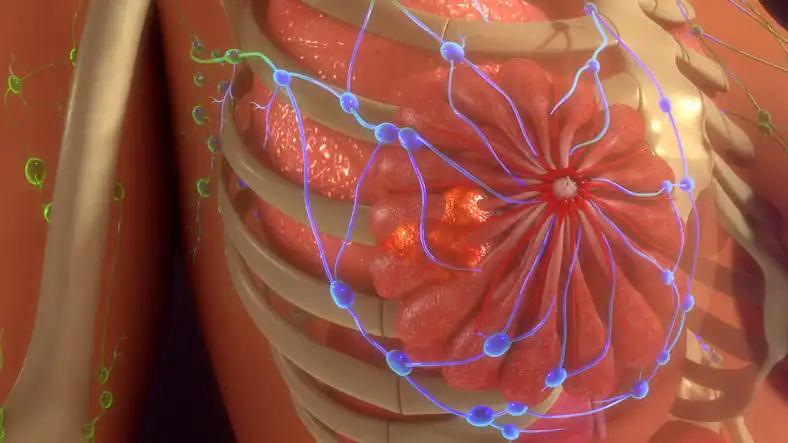KEY TAKEAWAYS
- The THRIVE trial aimed to assess the impact of an app that combines patient data, EHR, and personalized feedback on patient outcomes.
- The outcomes measured included AET adherence, symptom burden, QoL, self-efficacy, and healthcare utilization.
- The study found that symptom monitoring apps with tailored messages may improve mental health and reduce high-cost care encounters for breast cancer pts.
Adjuvant endocrine therapy (AET) reduces breast cancer recurrence, but adverse symptoms can make it difficult to stick to treatment. Researchers aimed to assess the impact of an app that combines patient data, electronic health records (EHR), and personalized feedback on patient outcomes.
The study split women with early-stage breast cancer into 3 groups based on mobile app usage during treatment. The (96) “App” group received the app and weekly text reminders. The (102) “App+Feedback (AF)” group received the app and additional personalized messages about symptom management, medication adherence, and communication. The (102)”Usual Care (UC)” group did not have access to the app. The study lasted 6 months, with pts filling out surveys at the beginning, 6 months, and 12 months. If pts experienced worsening symptoms or missed medication doses, alerts were sent to prompt follow-ups from the oncology team. The study measured various outcomes, including medication adherence monitored electronically and self-reported, symptom severity using FACT-ES, mental and physical health quality of life(QoL) with SF-12, self-efficacy in managing symptoms with PROMIS 1.0, and the count of emergency department visits, urgent care visits, hospitalizations (higher-cost encounters), and office visits over a 6-month period.
Pts had a median age of 60, with an age range of 31 to 83. About 34% of the pts identified as Black, 21% had incomes below 200% of the federal poverty level, and 20% had a high school degree or less education. Retention in the study at 12 months was 88%, with 264 pts remaining. The app group had an average of 14.4 logins during the intervention period, resulting in a mean of 4.2 alerts. Approximately 58.0% of the app group received at least one alert during the 6-month intervention. Adherence to AET over 12 months, as measured using a pillbox, was similar across the groups: 76% for UC, 73% for the app group, and 71% for AF. At the 12-month mark, pts in the AF group had fewer higher-cost care encounters over the previous 6 months (0.30, 95% CI: 0.15 to 0.45, P=0.01) compared to UC (0.71, 95%CI: 0.44 to 0.97), but there was no statistically significant difference between the app group (0.46, 95% CI: 0.25 to 0.66) and UC (P=0.15). On average, mental health scores at 6 months were 2.0 points better for pts in the AF group (43.0) than the UC group (41.0). There were no statistically significant differences among the groups in self-reported adherence, symptom burden, physical health, self-efficacy for managing symptoms, and office visits at 6 or 12 months.
The study found that symptom monitoring apps with tailored messages may improve mental health and reduce high-cost care encounters for breast cancer pts.
Source: https://ascopubs.org/doi/abs/10.1200/JCO.2023.41.16_suppl.512
Clinical Trial: https://www.clinicaltrials.gov/study/NCT03592771
Ilana Graetz, Xin Hu, Mehmet Kocak, Rebecca A Krukowski, Janeane Nicole Anderson, Teresa Waters, Andrea Curry, Andrew J. Paladino, Edward Stepanski, Gregory A. Vidal, and Lee S. Schwartzberg. DOI: 10.1200/JCO.2023.41.16_suppl.512 Journal of Clinical Oncology 41, no. 16_suppl (June 01, 2023) 512-512.



